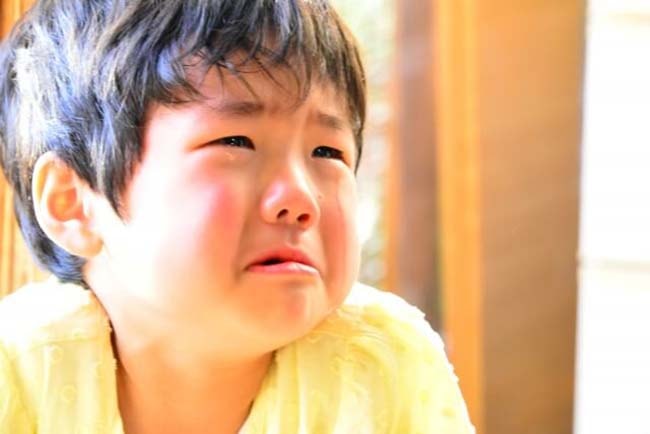12 phrases parents should never use when scolding their children
Raising children is not an easy journey, sometimes this is the opportunity for each father and mother to change themselves to raise children better.
1. "Why don't you know anything?"
The age of 4-5 is a milestone for parents to be careful in what they say to their children. Therefore, denying things like “you are not good at all, you are not cute, you can’t do anything…” is an action that makes children feel insecure that they will be exactly as their parents say.
2. "Why can friend A do it but I can't?"

Sayings like “A seems to be doing better than you, learn from your brother” will make children feel hurt and inferior to that person. Children always want to be praised by their parents, when compared to others, children gradually become more shy, less talkative and have a high risk of autism.
3. “Why can't I be…”
Even though parents know the reason why their children cannot do this, they still want to scold them. When a child is naughty, he just wants to have fun and does not want to cause trouble for everyone.
4. “We told you so.”
This sentence is used when you want to emphasize the fact that parents are always right. However, saying it too many times will make children lose the ability to think and act on their own. It can be replaced with the sentence "Because you did not listen to your parents, now you see the consequences, right?"
5. “Do what your parents say.”

“From now on, you have to listen and do what your parents say, and you are not allowed to talk back.” Maybe, parents only want the best for their children, so they want them to obey. However, this commanding statement does not always bring about the desired results.
6. “Do it carefully/correctly”
Words like “right”, “sure”, “careful” are all words with nuanced meanings. Adults can easily understand them, but children cannot. For example, when we say “Eat carefully”, it means to keep your back straight when eating, not to talk while eating, and to concentrate on eating. Although children will understand that they are doing something wrong and are being scolded, they will not understand why they are wrong and how to fix it.
7. “You have to try to endure”
When children are playing and parents take away their toys and say, “Let friend A borrow them to play with,” “You are the older sibling so you have to give them to your younger sibling, please be patient.” And after a while you will not understand why the two children are arguing, fighting, and crying. The simple reason is that forcing and forcing children to accept is an unreasonable action.
8. "You will be scolded by Mr. A and Mrs. B."

Although scolding is an act of teaching children, it is not always used arbitrarily. It will be advice when children are in public, causing noise and trouble for people around. If the child continues to be stubborn and does not listen to parents, you can give the child the choice "if you can not be quiet, you can go home now".
9. "How long do you want to cry?"
When a child is scolded and cries, he thinks that he has made his mother angry. When a mother tells her child not to cry, it means that she is not sympathetic and deprives the child of his feelings.
10. “Please apologize.”
The most important thing is to let the child understand that he did wrong, so he needs to apologize. A child is forced to apologize while they do not understand what they did wrong. Using the phrase in this case is coercive.
11. “I hate you too, Mom”

When scolded by their mother, children often react by hating their mother. They may say things like “go away, Mom,” “you don’t know anything.” These are completely normal and only temporary feelings of the child at that time. Absolutely do not say back “I hate you too” when hearing your child say he hates you. Calm down and take some time to talk to your child at this time.
12. "If I had known, I would not have given birth to you."
This is a sentence that is very hurtful to children. Therefore, you should never say this when scolding children, it can create a rift and destroy the mother-child relationship.


